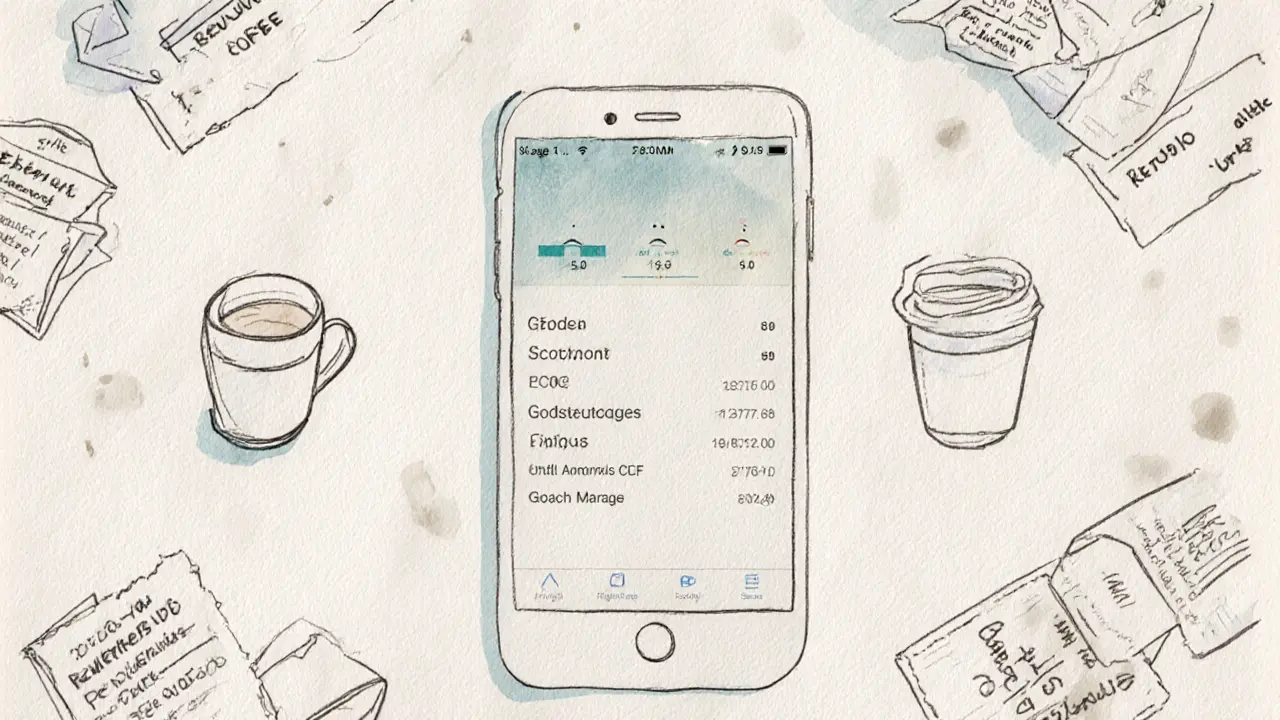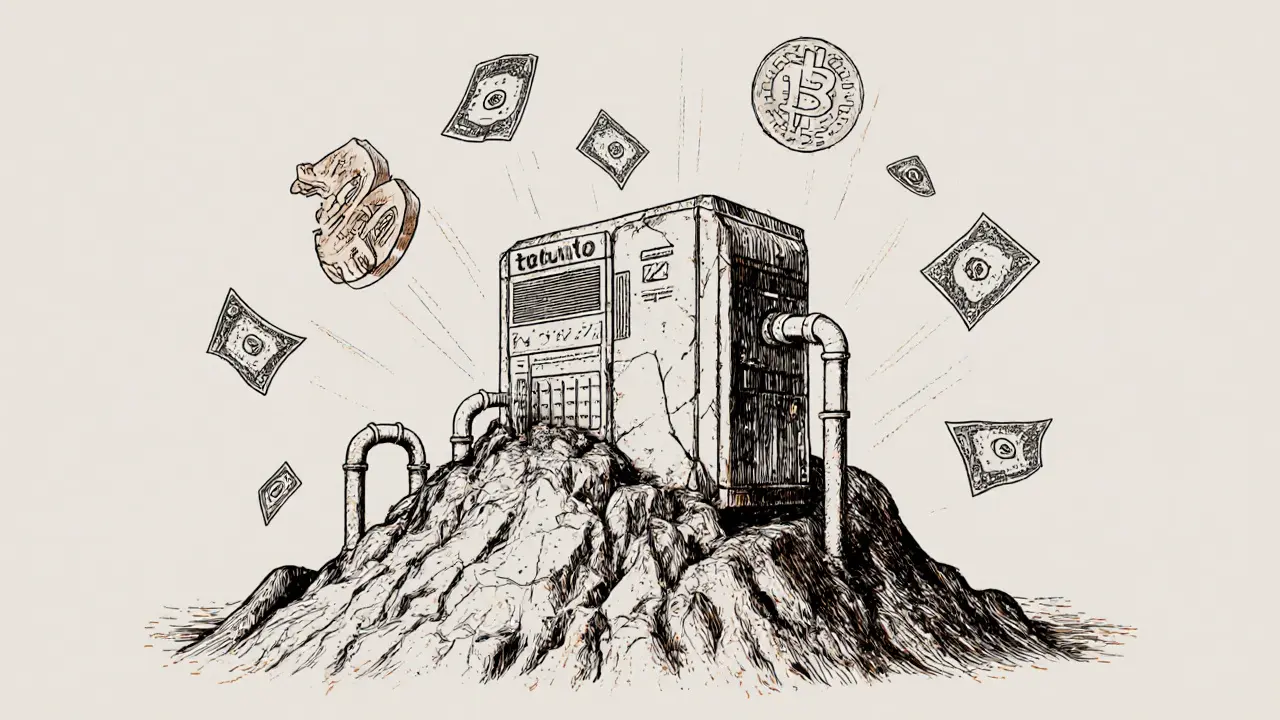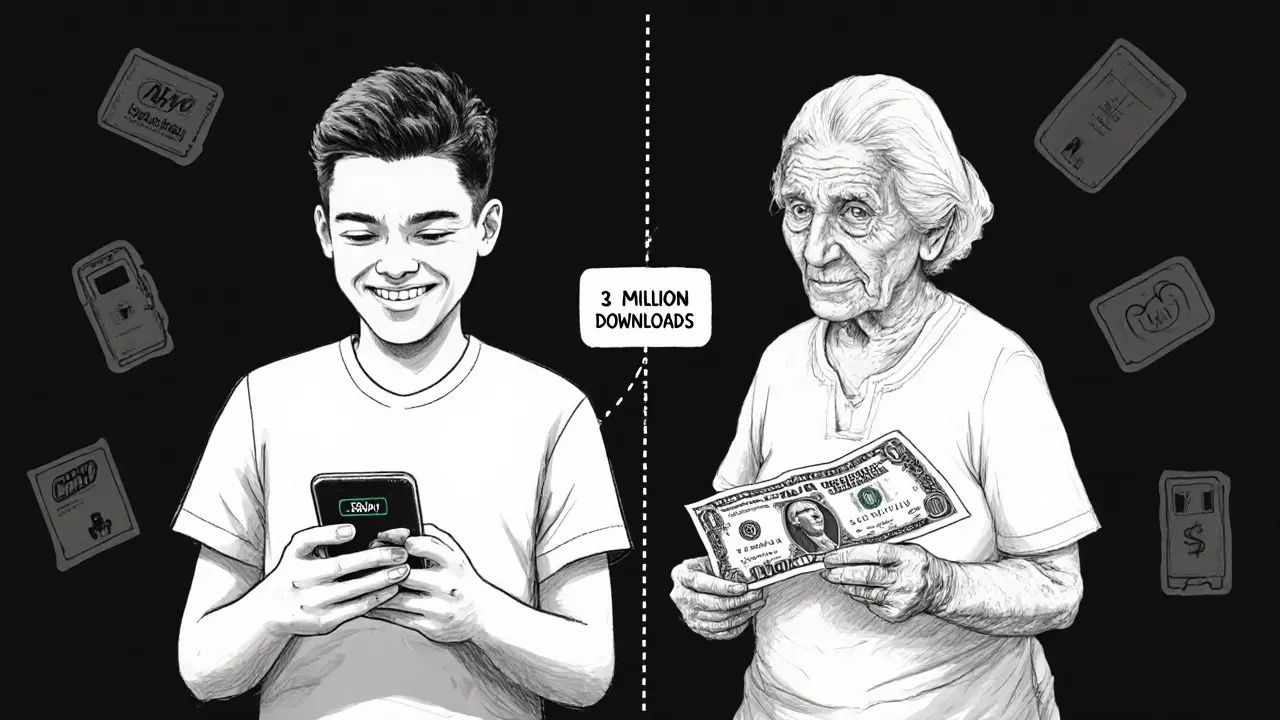How El Salvador Uses Bitcoin for National Economy

Remittance Cost Calculator
El Salvador Remittance Cost Comparison
Compare costs of sending money via traditional services versus Bitcoin. Based on real data from the article.
El Salvador didn’t just experiment with Bitcoin-it made it legal money. On September 7, 2021, the country became the first in the world to give Bitcoin the same status as the U.S. dollar. That meant you could pay for coffee, rent, or taxes with Bitcoin. The government even handed out $30 in free Bitcoin to every citizen who downloaded the official Chivo wallet app. At first, it looked like a bold step forward. But three years later, the story is far more complicated.
Why Bitcoin? The Economic Problems El Salvador Wanted to Fix
El Salvador’s economy has been stuck for decades. Over 70% of adults didn’t have a bank account. Sending money home from the U.S. cost up to 20% in fees. The country relied on remittances-money sent by Salvadorans living abroad-for more than 20% of its entire GDP. That’s more than $7 billion a year. Every dollar lost to fees was a dollar that never reached a family’s dinner table. President Nayib Bukele promised Bitcoin would fix this. No middlemen. No banks. No fees. Just direct transfers. The government claimed it would bring financial freedom to the unbanked, cut remittance costs, and attract foreign investors looking for crypto-friendly markets. They set aside $150 million to buy Bitcoin and back the system. They built the Chivo wallet. They offered gas discounts and cash bonuses. It sounded like a revolution.The Chivo Wallet: A Promising Start, Then a Slow Collapse
When the law launched, half the country downloaded the Chivo app. That’s over 3 million people. But downloads aren’t adoption. By early 2022, most people stopped using it. A study of 1,800 Salvadoran households found that over 60% of early users never made a single transaction after spending their free Bitcoin. One in five still hadn’t touched their bonus. Why? Because using Bitcoin isn’t like using a debit card. You need to understand wallets, private keys, transaction fees, and price swings. Many users didn’t know how to check their balance. Others lost access because they forgot their password. Rural communities with no reliable internet couldn’t use it at all. The app crashed often. Support centers were few. The government promised financial inclusion, but the tool only worked for the young, tech-savvy, and urban.Bitcoin as Legal Tender: What It Actually Means
Legally, Bitcoin can be used to pay debts, taxes, and prices. Businesses must accept it. But here’s the catch: most businesses don’t want to hold Bitcoin. So the Chivo wallet automatically converts Bitcoin to U.S. dollars the second it’s received. That’s not freedom-it’s a bridge. The dollar is still the real money. Bitcoin is just a middle step. The government says this protects users from price swings. But it also means Bitcoin isn’t really functioning as money. It’s not a store of value. It’s not a unit of account. It’s a payment pipe. And that pipe is leaky. When Bitcoin’s price dropped 40% in late 2022, the government lost millions on the $150 million it bought. They had to sell Bitcoin at a loss just to cover public payroll.
The IMF Step In: When the World Said ‘Stop’
The International Monetary Fund (IMF) didn’t hold back. They called El Salvador’s move a “significant risk” to financial stability. In 2024, after the country struggled to secure loans, the IMF agreed to lend $1.4 billion-but only if El Salvador scaled back its Bitcoin plan. The deal required the government to stop using Bitcoin for public spending, improve transparency around Bitcoin purchases, and strengthen financial oversight. This wasn’t just a loan condition. It was a public admission: Bitcoin as national currency wasn’t working. The IMF didn’t say Bitcoin is bad. They said using it as legal tender is too risky for a small, dollarized economy. El Salvador had to choose between innovation and survival. They chose survival.Who Really Benefits? The Real Winners and Losers
The winners? A handful of crypto investors and foreign speculators who bought Bitcoin when the price was low and sold when it spiked. A few tech startups that got government contracts to build wallet infrastructure. And President Bukele, who turned the Bitcoin move into a global branding win. The losers? Ordinary Salvadorans. Those who were supposed to benefit-the unbanked, the rural poor, the elderly-got a confusing app, a volatile asset, and no real improvement in their daily lives. Many now distrust digital money. Some say the whole thing was a distraction from deeper problems: corruption, weak institutions, and underfunded schools. Even the promised remittance savings didn’t materialize. Most people still use Western Union or MoneyGram. Why? Because they know how they work. Bitcoin’s speed advantage means nothing if you can’t use it.
The Aftermath: Bitcoin Still Legal, But Mostly Ignored
Bitcoin is still legal tender. You can still pay taxes with it. But very few do. The government still holds Bitcoin in its reserves, but it’s no longer buying aggressively. The Chivo app still exists, but daily active users are under 10% of downloads. The free Bitcoin bonuses are long gone. The gas discounts? Mostly forgotten. The country hasn’t abandoned Bitcoin entirely. It still mines some using volcanic geothermal energy. A few small businesses accept it. But the dream of a Bitcoin-powered economy? That’s over.What This Means for Other Countries
El Salvador’s experiment was never just about money. It was a test. Could a poor country leapfrog traditional finance using crypto? The answer is no-not like this. The lesson isn’t that Bitcoin is useless. It’s that you can’t force adoption. You can’t replace a financial system with a flashy app and free cash. Real change needs education, infrastructure, trust, and time. El Salvador tried to skip all of that. Other countries are watching. Panama, Nigeria, and Ukraine have all looked at crypto. But none are copying El Salvador’s model. Instead, they’re building central bank digital currencies (CBDCs)-digital money issued by the state, not by the market. That’s safer. That’s predictable. That’s what most experts now say the future looks like.Final Reality: A Symbol, Not a Solution
El Salvador didn’t revolutionize its economy with Bitcoin. It turned Bitcoin into a political symbol. A way to say, ‘We’re different. We’re bold.’ But symbols don’t pay bills. They don’t feed families. They don’t build roads or hospitals. The U.S. dollar still runs the economy. The people still rely on remittances. The banks still hold the money. Bitcoin didn’t fix El Salvador’s problems. It just made them noisier.What’s left? A country that tried something radical, failed to deliver on its promises, and is now quietly walking back its most ambitious idea-without ever saying it was wrong.


Brian Gillespie
November 12, 2025 AT 14:51Bitcoin didn't fix anything. Just made people confused.
Rachel Everson
November 13, 2025 AT 06:10Honestly? This is why you can't just slap a tech solution on a systemic problem. People need trust, not apps. The Chivo wallet was a nice idea, but it ignored the real barriers-literacy, connectivity, and fear. No amount of free BTC fixes that.
Ashley Mona
November 14, 2025 AT 02:22OMG I love how everyone’s acting shocked. This was always gonna be a dumpster fire. Bitcoin’s volatility? Nah, we’ll just convert it to USD instantly. So… what was the point again? 😅
Ainsley Ross
November 15, 2025 AT 15:08As someone who’s worked in financial inclusion across Latin America, I’ve seen this script before. The allure of ‘disruption’ often blinds policymakers to the reality of human behavior. El Salvador didn’t fail because Bitcoin is flawed-it failed because it assumed technology alone could replace decades of institutional neglect. The real innovation would’ve been building rural banking access, not a wallet.
Johanna Lesmayoux lamare
November 16, 2025 AT 07:20They didn’t need crypto. They needed better remittance pipelines. Western Union isn’t evil-it’s reliable.
Adrian Bailey
November 17, 2025 AT 14:49so like… i downloaded chivo bc i got free btc and then i just sat on it for like 6 months because i had no clue how to send it to my mom’s taco stand. and when i finally tried, the app crashed. and then i forgot my password. and then i lost my phone. and then i just gave up. i still use western union. it’s easier. i don’t need to understand blockchain to feed my family. 🤷♂️
Laura Hall
November 19, 2025 AT 05:54Look, I get the dream. But forcing adoption without education is like handing someone a Ferrari and saying ‘drive’ when they’ve never seen a road. The real tragedy isn’t the lost Bitcoin-it’s that this distracted from real solutions: better schools, mobile banking partnerships, and local credit unions. Now people are scared of digital money because the government made it look like a scam.
ty ty
November 19, 2025 AT 14:13Oh wow. A whole country tried to be cool and failed. What a surprise. Next they’ll try paying taxes with NFTs. I’m sure the IMF will be thrilled.
Wayne Dave Arceo
November 21, 2025 AT 07:12El Salvador’s experiment was not merely misguided-it was a constitutional and economic farce. Legal tender implies stability, predictability, and state-backed credibility. Bitcoin is none of those things. The IMF’s intervention was not an attack on innovation-it was a necessary correction to prevent hyperinflationary contagion. Any nation considering this should first study the 2022 BTC sell-off that forced the state to liquidate reserves to pay teachers. That’s not freedom. That’s financial desperation disguised as ideology.
tom west
November 21, 2025 AT 21:13Let’s be brutally honest: this was a PR stunt wrapped in libertarian fantasy. Bukele didn’t care about the unbanked-he cared about global headlines. The $150M Bitcoin buy-in was a vanity project funded by public debt. The Chivo wallet? A glorified Trojan horse for surveillance capitalism. And now the IMF’s lending terms? That’s the real power play-Western institutions forcing a sovereign nation to abandon its sovereignty under the guise of ‘stability.’ Wake up. This isn’t about Bitcoin. It’s about control.
Debraj Dutta
November 21, 2025 AT 21:57Interesting case study. In India, we’ve seen similar attempts with UPI-simple, state-backed, and integrated into daily life. The key difference? Education came before rollout. El Salvador skipped the basics. No amount of free crypto can replace financial literacy.
dhirendra pratap singh
November 23, 2025 AT 14:35THEY WERE NEVER GOING TO SUCCEED!!! 😭 Bitcoin is for rebels, not governments! The moment they tried to make it ‘official’, it died. This is why crypto must stay wild, decentralized, and chaotic. The IMF? They’re scared of freedom. The real winners? The people who bought BTC at $10k and sold at $60k. The rest? Just pawns in Bukele’s ego trip. 🤡
Elizabeth Stavitzke
November 24, 2025 AT 06:25Of course it failed. You can’t turn a developing nation into a crypto lab and expect normal people to care. This isn’t Silicon Valley. This is a country where many still use cash because they’ve seen too many ‘innovations’ that vanished overnight.
Joanne Lee
November 25, 2025 AT 23:05One thing I found striking: the government never partnered with local NGOs or community leaders to educate people. No workshops. No radio campaigns. Just an app and a press release. Real inclusion requires humility, not hype.
Suhail Kashmiri
November 27, 2025 AT 13:20you think this is bad? wait till they start using dogecoin for public schools. at least the dollar is boring and reliable. bitcoin is just gambling with your groceries.
Arthur Coddington
November 28, 2025 AT 10:19El Salvador didn’t adopt Bitcoin. They adopted a meme. And now the meme is dead. The real question is: why did the world cheer them on in the first place? Because we’re all tired of the old system… and desperate enough to believe in magic.
William Moylan
November 29, 2025 AT 18:47you think this was about money? nah. it was a psyop. the feds wanted to see if they could destabilize a sovereign nation’s economy using crypto. now they’ve got data on how to weaponize it. next stop: venezuela. or maybe even the us. the chivo wallet had backdoors. i know people who worked on it. they’re all gone now. 🔐
Michael Faggard
December 1, 2025 AT 17:44Let’s not confuse asset speculation with monetary policy. Bitcoin’s volatility and lack of intrinsic value disqualify it as a unit of account or store of value. The Chivo wallet’s auto-conversion mechanism proves the state recognized this-making the entire legal tender framework functionally incoherent. This wasn’t innovation. It was institutional incoherence dressed in blockchain glitter.
Rebecca Saffle
December 1, 2025 AT 22:01I just feel so angry about this. All those poor people got a useless app and then the government lost millions. And what did they get in return? A hashtag. A TikTok trend. A president who got famous. Meanwhile, my abuela still sends money through Western Union because she doesn’t trust anything that doesn’t have a receipt. This isn’t progress. It’s exploitation.
Michael Heitzer
December 2, 2025 AT 03:44Here’s the deeper truth: El Salvador didn’t fail because Bitcoin was bad. They failed because they tried to leapfrog human nature. Money isn’t just code-it’s trust. It’s ritual. It’s the way your mother hands you cash for bread. You can’t replace that with an app, no matter how many free coins you hand out. The real revolution isn’t in the blockchain-it’s in building institutions that earn people’s faith. And that takes decades, not tweets.
Kristin LeGard
December 3, 2025 AT 13:04Let’s be real-this was always about Bukele’s ego. He didn’t care about the people. He cared about being the ‘Bitcoin President.’ And now he’s got his legacy. The rest of us? We’re just collateral damage.